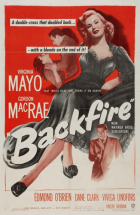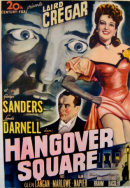 M announces from the get-go what the film is going to be about. Before we even see a moving image, we hear a child counting out a playmate with a gruesome rhyme about a bogeyman who will soon come grinding down those present. A woman who overhears the kids cusses them out, but that only stops them until she’s out of sight, upon which they resume their game. To them, it’s abstract entertainment with no connection to real life, a naivety that carries through the rest of the film. To her, it’s a reminder of the very real threat of a serial child murderer (played to great effect by Peter Lorre) on the loose in Berlin, then one of the largest cities in the world.
M announces from the get-go what the film is going to be about. Before we even see a moving image, we hear a child counting out a playmate with a gruesome rhyme about a bogeyman who will soon come grinding down those present. A woman who overhears the kids cusses them out, but that only stops them until she’s out of sight, upon which they resume their game. To them, it’s abstract entertainment with no connection to real life, a naivety that carries through the rest of the film. To her, it’s a reminder of the very real threat of a serial child murderer (played to great effect by Peter Lorre) on the loose in Berlin, then one of the largest cities in the world.
This beginning also signals the importance of sound to the internal structure of the film, one of Germany’s first using the new technology. There is no non-diegetic music, something that would have been weird for a silent movie, much less one that could finally play back the same background music in synch in every cinema showing it. In fact, there are even stretches of the film that are fully devoid of any sound: no music, no speech, no effects. Those are quite eerie, certainly for a modern viewer not used to complete silence in films, especially when briefly broken by individual sound effects. The lack of non-diegetic music also accentuates every moment in which music is being heard, mainly in the form of whistling. Most prominently and famously, Hans Beckert, the killer, whistles a portion from Edvard Grieg’s Peer Gynt (1876) when in pursuit of his compulsion; while not heard in its entirety, only in broken segments, the full piece is played ever faster and more chaotic until its conclusion, a fitting melody for a man forced to kill by his inner demons. Continue reading

 My Blu-ray set makes a valiant effort to translate the word “rififi”, but can’t quite convey all of its aspects. That’s understandable if you consider that even the film itself requires a three-minute musical number to explain what it means, including an admission that it won’t be found in any dictionary. It’s Parisian gangster slang that expresses, among other things, violent conflict resulting out of a particularly male disposition for roughness and macho posturing.
My Blu-ray set makes a valiant effort to translate the word “rififi”, but can’t quite convey all of its aspects. That’s understandable if you consider that even the film itself requires a three-minute musical number to explain what it means, including an admission that it won’t be found in any dictionary. It’s Parisian gangster slang that expresses, among other things, violent conflict resulting out of a particularly male disposition for roughness and macho posturing.
 I chose this film for my last review of 2011 because of an impulse that made me type “Christmas” and “noir” into google, and one of the films that popped up was Backfire. I didn’t know anything else about the movie before I started watching and tried to keep it that way, because I occasionally like to be surprised (most recently,
I chose this film for my last review of 2011 because of an impulse that made me type “Christmas” and “noir” into google, and one of the films that popped up was Backfire. I didn’t know anything else about the movie before I started watching and tried to keep it that way, because I occasionally like to be surprised (most recently,  Every week after posting a new blog entry, I have a “tradition” (if you can call it that after such a short period of time) of clicking on the tags below and taking a look at what other wordpress users recently had to say about the subjects at hand. Last week, this brought Hangover Square to my attention, a film reuniting George Sanders, an actor whom I admire greatly, and Laird Cregar, who had been unknown to me prior to watching
Every week after posting a new blog entry, I have a “tradition” (if you can call it that after such a short period of time) of clicking on the tags below and taking a look at what other wordpress users recently had to say about the subjects at hand. Last week, this brought Hangover Square to my attention, a film reuniting George Sanders, an actor whom I admire greatly, and Laird Cregar, who had been unknown to me prior to watching